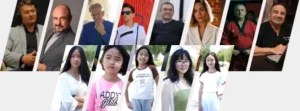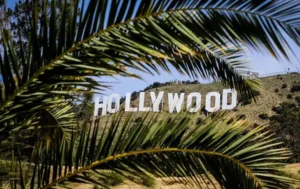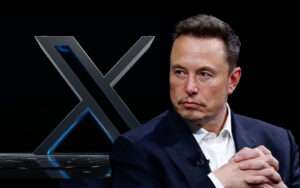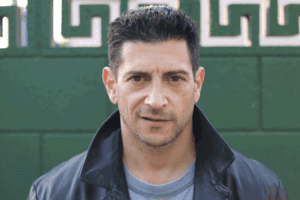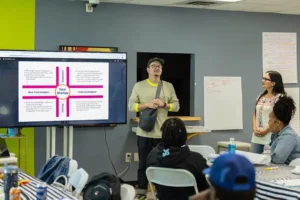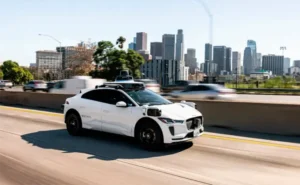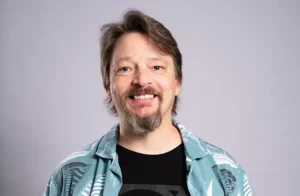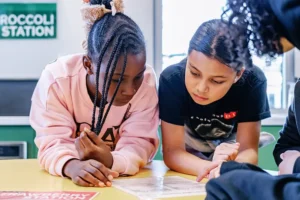Nestled in the heart of Vacaville, California, Yin Ranch stands as more than just a picturesque landscape — it’s a living symbol of one man’s vision for community, culture, and civic responsibility. Founded by C.C. Yin, renowned entrepreneur, philanthropist, and founder of APAPA (Asian Pacific American Public Affairs), Yin Ranch is the culmination of a lifelong commitment to creating spaces where people from all walks of life can come together, connect, and thrive.
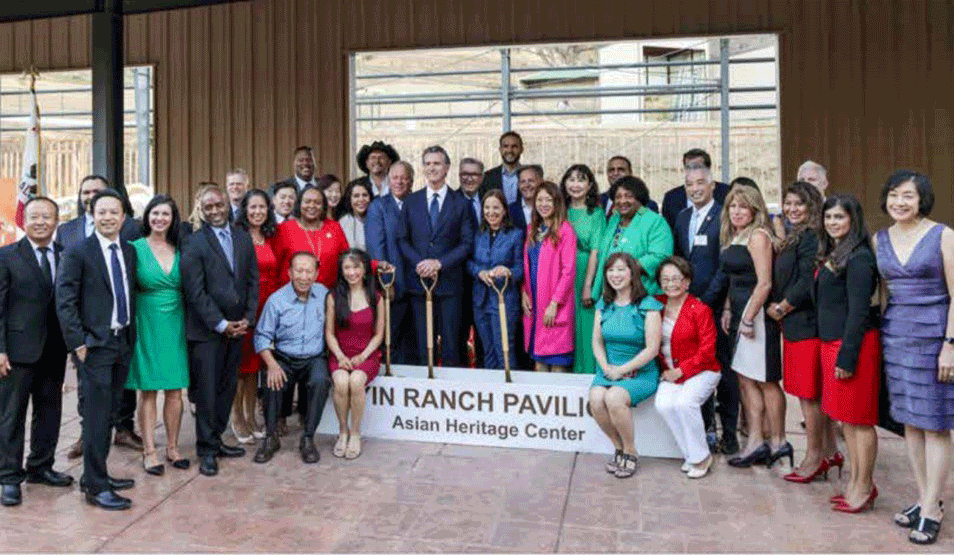
For C.C. Yin, success was never solely about business — it was about impact. From building a Yin McDonald’s empire to empowering future leaders through APAPA, his mission has always centered on giving back. Yin Ranch embodies that mission, serving as a hub for cultural celebrations, community gatherings, leadership retreats, and civic engagement. In his 40-acre Yin Ranch Mansion, you can see on the wall pictures of C.C. with U.S. Presidents, Governors, Congress Members, Senators, Assembly Members, Mayors, and executives of large corporations, — a testament to the vast network of relationships he has cultivated through his dedication to civic and community leadership.
From China to California: A Journey of Determination
C.C., your name is known not only in the United States but around the world. Your journey from China to the United States is incredibly inspiring. Can you tell us about your early days, what challenges you faced as an immigrant, and what motivated you to pursue the American Dream? How did those early experiences shape your values and leadership style?
Thank you, Sergey. My journey has definitely been shaped by many challenges and life-changing moments. I was born in the rural part of China — Renshou County, Sichuan Province near in the city of Chengdu — and my early years were far from easy. My mother passed away when I was just six years old, and my childhood was marked by constant upheaval. I lived through World War II, the Japanese invasion of China, and the struggles of a broken family.
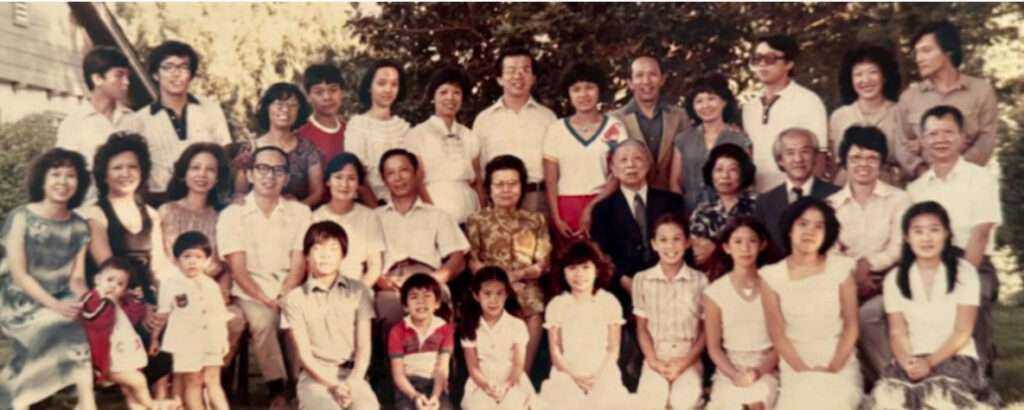
Life was hard. I still remember the meals we were given at school — just a scoop of soup, a small bowl of rice, and five peanuts. That was it. I was always hungry and painfully thin — my legs looked like chopsticks.
I’ve always seen myself as a builder. When I was 10 years old, I formed a group of friends we called “Radar Team.” Together, we hunted for food — birds, fish, whatever we could find. We also played basketball and soccer, cooked our meals together, and looked out for one another. We grew up as a team and family — sharing everything, surviving together, and building lifelong bonds through those tough but formative years.
In 1949, when I was 12 years old, I fled to Taiwan with my family as China was going through immense political turmoil. It was another major turning point in my life. Like many during that era, I had to adapt quickly just to survive. But even in those harsh conditions, I learned resilience, humility, and the true value of perseverance.
One of the most valuable lessons I learned during those years was the power of relationships — understanding how to collaborate with people from all walks of life. As I often say, my greatest survival skill was building friendships and learning to work with those who were different from me. That mindset stayed with me throughout my life and proved especially important when I moved to the United States.
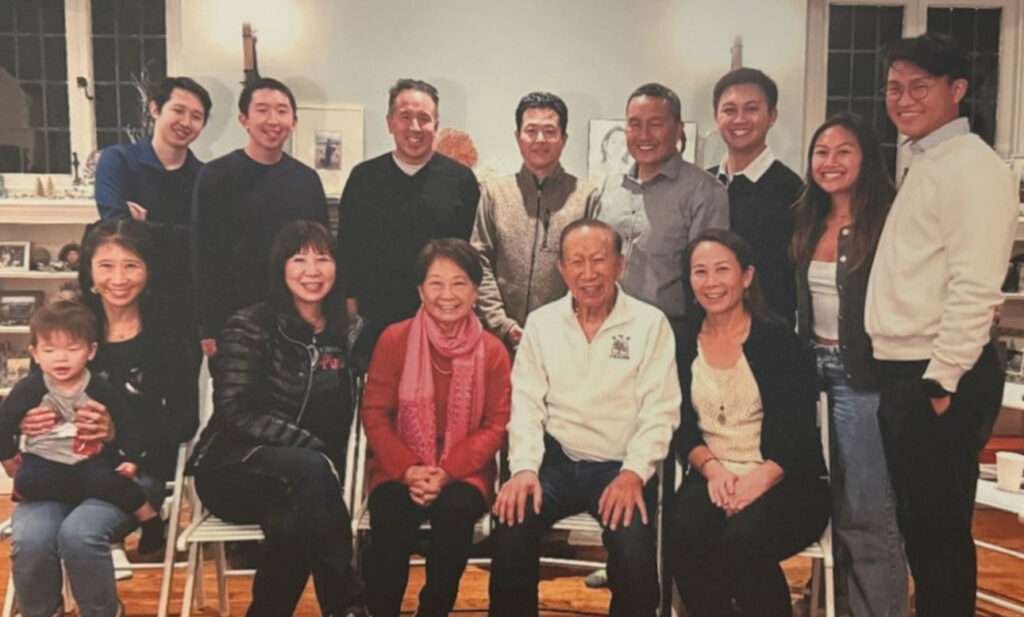
I consider myself incredibly fortunate to be where I am today, and I’m deeply grateful to this country for the opportunities it has given me. The American Dream became real for me, and I’ve always felt a strong responsibility to give back — not just to Asian Americans, but to all immigrant communities who, like me, came here in search of a better life.
I always felt a deep responsibility to honor those who came before us — Native Americans, early immigrants, and those who sacrificed to build this great country. They created the foundation, and it’s our duty to contribute, support others, and lift each other along the way. True success isn’t measured by personal achievements alone — it’s defined by how many others you uplift along the way.
C.C., leaving your home country is never an easy choice. What motivated you to leave China?
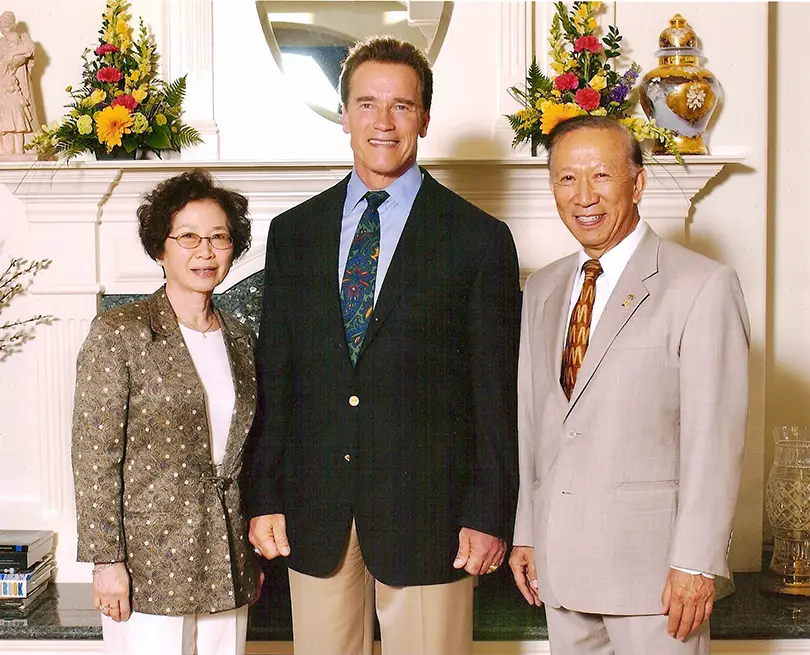

Motivation for me? Starvation. Actually, there were two parts to it: emotional and spiritual. It was a hopeless situation.
I came from a broken family, a broken country, and a broken spirit. That was the emotional side. Physically, I survived starvation. It wasn’t a choice — I was simply running with the hope that one day, I wouldn’t feel that way anymore.
I was 28 years old when I left China. It wasn’t an easy decision, but it was necessary. China was experiencing political and economic instability at the time, and I wanted a better future, not just for myself but for the family I hoped to build one day.
C.C., how did your educational background influence your journey to the United States?
Before coming to the U.S., I earned a bachelor’s degree in civil engineering from Taiwan Cheng Kung University. However, when I arrived in America, I quickly realized that my degree wasn’t enough to break into the U.S. job market — I couldn’t find a job.
Determined to succeed, I pursued a master’s degree in structural engineering at the University of Washington. During that time, I married my wonderful wife, Regina, and together we settled in the San Francisco Bay Area, where we raised our three beautiful daughters — Mary, Betty, and Carol — beginning our new life in 1969.
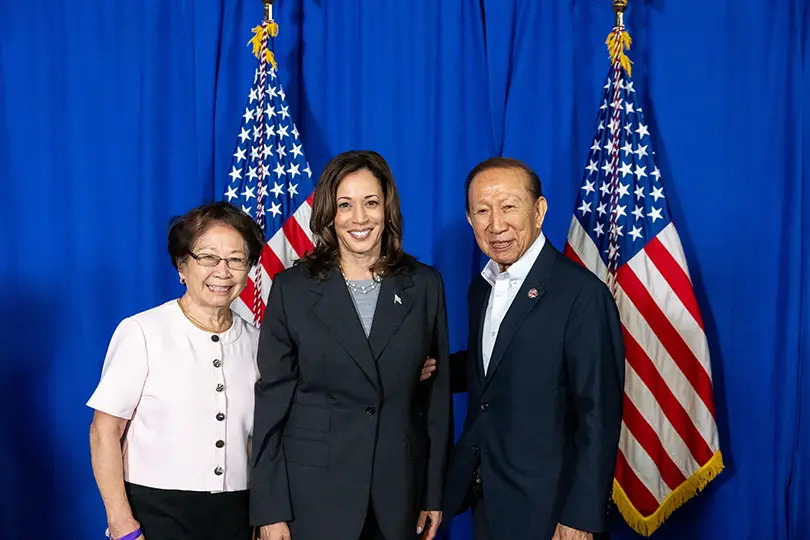
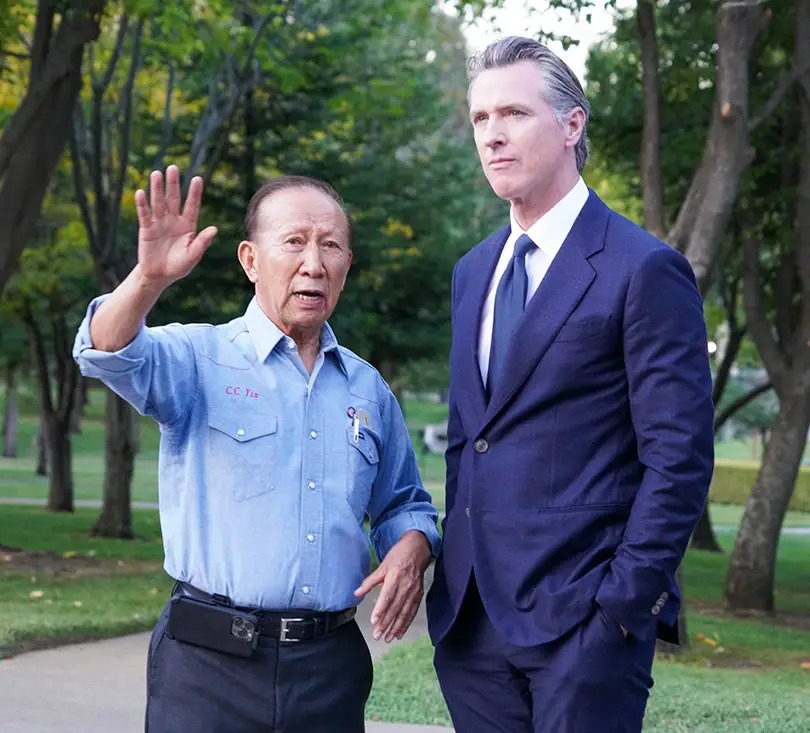
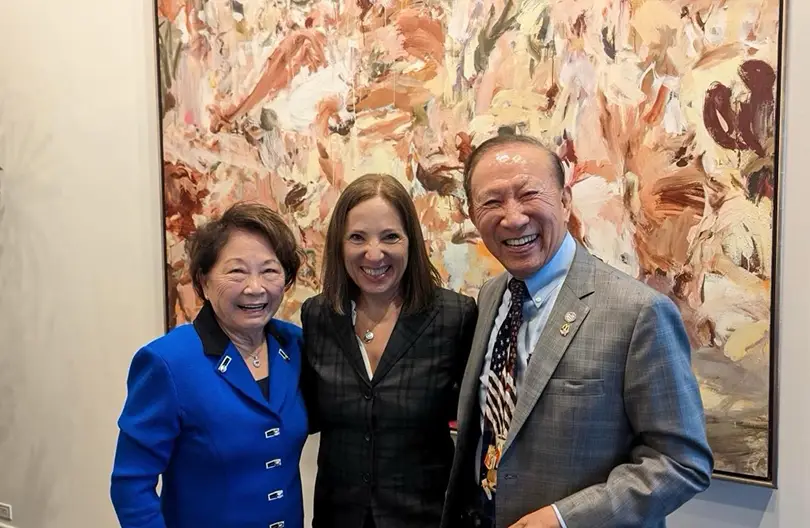
C.C., that’s quite a journey — from China to Taiwan, then to the U.S. for a second degree. What were those first few years like in the Bay Area?
Worse than in China! I didn’t know where to go or what to do. But actually, if you already know exactly where you’re going and what you’re going to do, that’s not necessarily a good thing. When everything is planned out, you stop learning. Seriously — look at me. I had no idea what my next step would be, and that turned out to be the best kind of education. When you know everything in advance, there’s no room for growth. Don’t be afraid of the unknown. Go out, talk to people — that’s where the real opportunities are.
Those early years were tough, but they were also deeply rewarding. I spent 15 years working as a civil engineer, building a stable career and raising a family. Yet deep down, I always had an entrepreneurial spirit. I wasn’t just looking for stability — I wanted to create jobs and opportunities, build something meaningful, and truly make a difference in my community. I call myself a builder.
So after 15 years as an engineer, you decided to take a big leap?
No, no, no — I didn’t decide. I was 49 years old, after working for 15 years at a large corporation that had projects across many countries — the United States, Canada, China — everywhere. Big projects. I believed that America was fair and democratic, and I thought I had built a stable career. I was doing well in engineering, working as a project manager. But one day, my boss called me in and said, “We need to lay you off.”
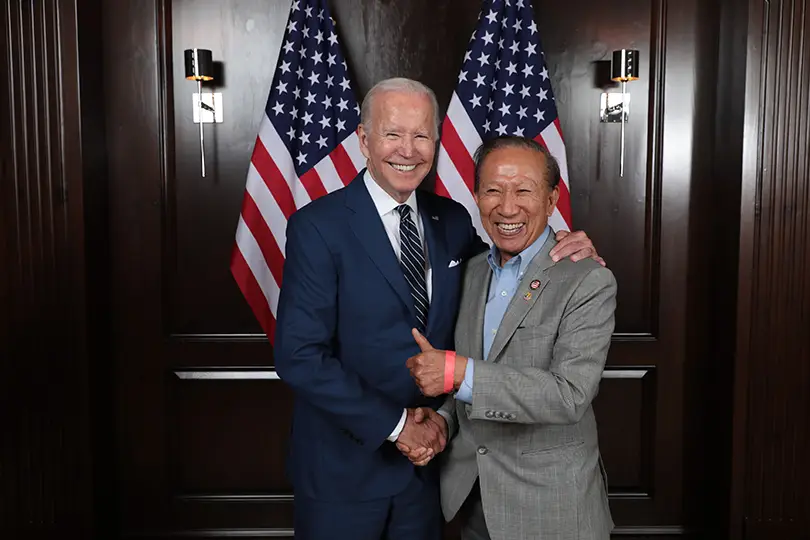
I didn’t understand why this had happened, but I knew I had to survive and support my family. So I started selling costume jewelry and cosmetics on the street.
Just like that, I was out on the street — with an engineering degree, 15 years of experience, and no job. At the time, I had three daughters in high school and college, and I was the sole financial provider for our family. It was a very difficult moment.
Having an engineering degree, how did the idea of McDonald’s ownership even come up?
During that time, I met another Chinese guy doing the same thing. One day, he told me there was a McDonald’s restaurant for sale in Oakland. He asked, “Do you want to buy it?”
I said, “Yes. I don’t want to work for a company anymore — there’s no future there. I’m 49 years old. I have no future unless I create it. I want to do business — any business. I don’t care what it is.” The problem was, I had no money and absolutely no experience with McDonald’s. Still, I told myself, “That’s okay — I’ll figure it out.”
A few days later, my new friend called again and said,
“The McDonald’s is still for sale.” I told him it sounded good — but I also admitted, “I don’t know anything about a McDonald’s.” Also I didn’t know how dangerous this place was. If I knew I won’t go there.
He insisted and invited me to lunch with McDonald’s owner and said, “Come at 11 a.m. or 2 p.m. — it’s much safer. Don’t come at noon.”
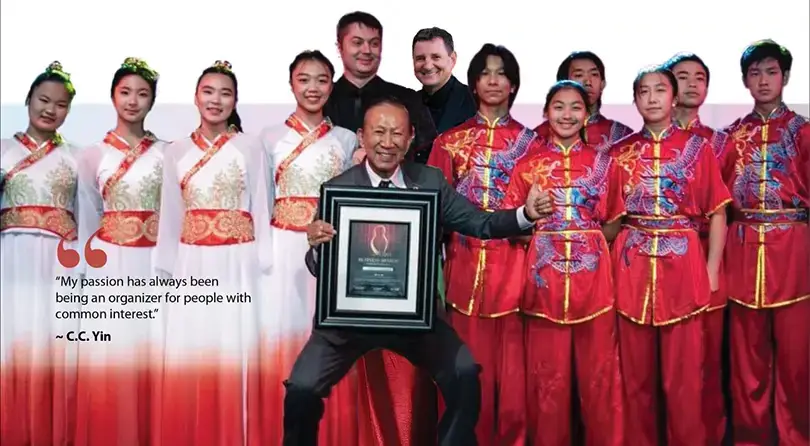
At our first meeting, Mr. J., the previous owner of the McDonald’s restaurant, told me bluntly, “C.C., you’re not qualified. You have no experience. Your English isn’t great. You don’t know anything about leadership. You’ve never run a business. And you have no money.” We didn’t even get to the point of discussing the price.
I replied, “But I can manage engineers.”
He countered, “You don’t know people — and people here don’t know you.”
I went home thinking, Okay, maybe this isn’t for me. I’ll find something else. I didn’t tell anyone about that meeting, but I had found someone who wanted me to succeed — someone who believed in me. By that time, I already wanted to buy the McDonald’s, even though I knew little about the business and had no idea how dangerous the location really was.
So that’s how you got your first McDonald’s?
A miracle happened — McDonald’s finally agreed to give me a chance to prove myself. They offered me a six-month unpaid training program with regular performance evaluations based on their internal standards. I managed the restaurant, trained with the staff, washed dishes, cleaned; I did everything. I had to learn how to be a manager and show them I was capable. But it cost them nothing — free labor, basically.
It was the time when I decided to follow my entrepreneurial instincts and acquire my first McDonald’s in Oakland. It was far from an easy start. The restaurant was located in one of the toughest neighborhoods in the Bay Area, and many others had passed on the opportunity to buy it because of the challenges. But I saw it differently — I saw potential where others saw risk.
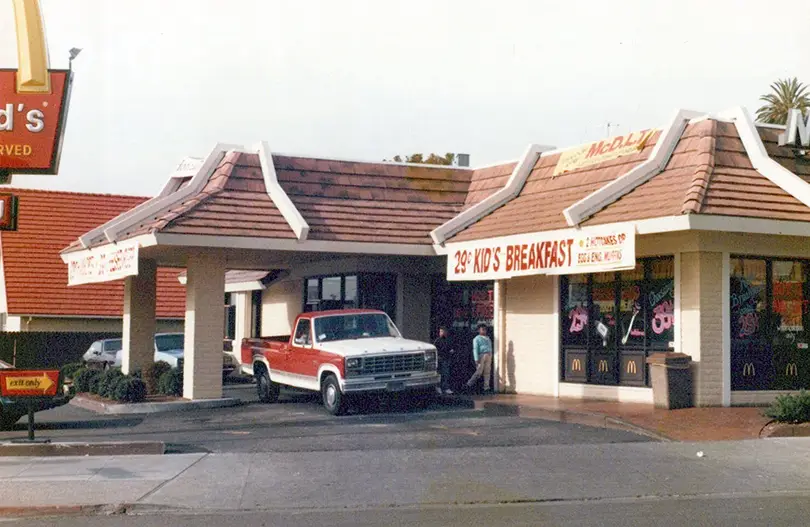
“I saw potential where others saw risk.”
– C.C. Yin
I worked day and night, doing every job and learning every detail — to prove that I was capable and qualified to be a business owner. Sometimes I was so exhausted that I couldn’t even make it home, often sleeping in my little Pinto just to keep going.
I often saw dead bodies on the street right in front of McDonald’s. People were selling drugs, and prostitutes were meeting with clients. Every Friday, a car show took place in front of McDonald’s, featuring flashy vehicles stolen from wealthy neighborhoods.
When I officially took over the store, the first thing I did was go to the Chief of Police. I said, “Mr. Chief, we need protection. My employees, my customers, and I — we all pay taxes.”
He looked at me and said, “Mr. Yin, we don’t have enough officers.”
Then I went to the Mayor and said the same thing:
“Mr. Mayor, I’m an American citizen. I pay taxes. I have the right to be protected.”
To stay safe, I hired armed security guards to protect the store — but they disappeared on the very first day after encountering gang members with big guns.
After three months, McDonald’s prepared their official evaluation report based on ten criteria — and it was F, F, F, F… all ten Fs.
But there was another required report — from the McDonald’s staff I had been managing directly. In that report, it was A, A, A… all ten As.
That turning point in my life pushed me to think differently — to take risks, believe in myself, and begin building something entirely new.
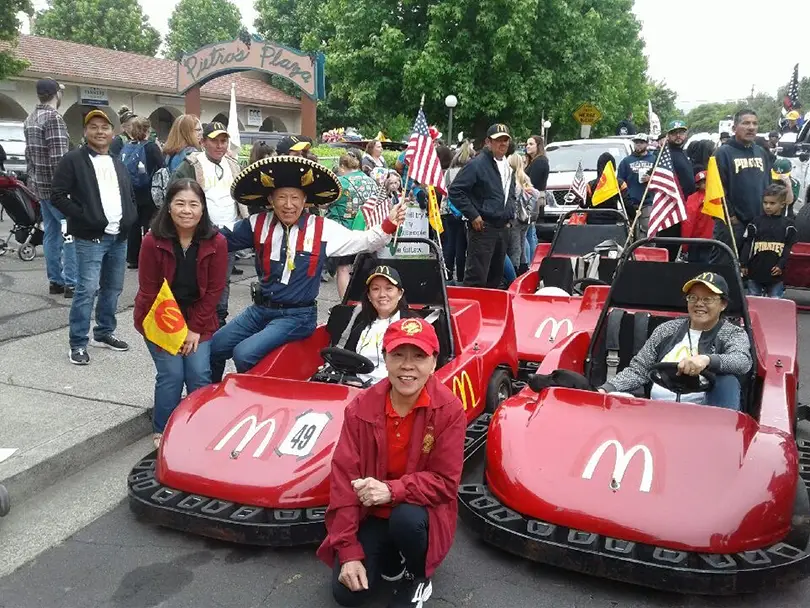
What made you take that risk, especially with such a challenging first location?
C.C. Yin: This location was in a high-crime area, and the business had been struggling. But I didn’t let that scare me. I saw it as an opportunity to not only turn the business around but also to make a difference in the community. It was a rough start, no doubt about it, but that experience taught me more than just how to run a business — it was my “jump start” into understanding American politics and how deeply local economies, communities, and public policies are connected.
Turning Challenges into Opportunities
“When I first visited the bank to borrow money for the McDonald’s, I immediately noticed the bulletproof glass, the fence around it, and two armed guards.”
– C.C. Yin
So, how did you turn that struggling McDonald’s into a success?
I spent long hours in that restaurant, sometimes working 16 hours a day, learning every part of the business — from operating the grill to managing the books. I also made it a point to talk to customers and build relationships within the local community.
Little by little, things started to improve. By treating employees like family and investing in the safety and reputation of the restaurant, we began attracting more families.
The community started to trust the space, and our sales began to grow.
That’s powerful. You didn’t just turn around a struggling business — you changed the dynamic of an entire community.
Exactly. That’s always been my philosophy. It’s never just about selling burgers — it’s about building trust, creating jobs, and improving the lives of people in the community. That first location became the foundation for everything I built afterward.
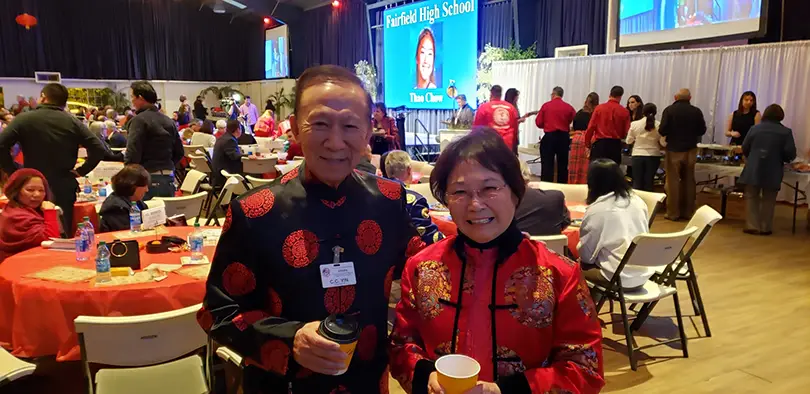
Building a Yin McDonald’s Empire
From that first Oakland location training to eventually owning, together with your family, around 30 McDonald’s restaurants — that’s quite a journey. At what point did you realize you were building something bigger than just a single restaurant?
When I saw the impact one location could have on a community, I knew I wanted to do more. Once McDonald’s corporate saw how I turned that store around, they offered me more opportunities — especially locations that needed extra care and attention. In the beginning, banks wouldn’t even lend me money to buy a McDonald’s, but within ten years, things changed dramatically — banks were offering me 110% financing, far beyond the typical 75% term.
I applied the same principles of hard work, employee development, and community involvement to every new location. As a business owner in tough neighborhoods, I learned to connect with local community, government, businesses, law enforcement, and individuals from all backgrounds and cultures. I also reached out for support whenever needed, whether it was from the local Chamber of Commerce or the city planning department. It was a truly eye-opening experience that taught me how American society works — and how I could make a difference in the community.
And here we are today — together with the Yin family, we own nearly 30 McDonald’s restaurants across California, creating jobs, providing opportunities, and strengthening communities.
That’s what makes your story so inspiring — you didn’t shy away from challenges; you leaned into them.
Challenges are just opportunities in disguise. If you can see past the obstacles, you can create something truly impactful.
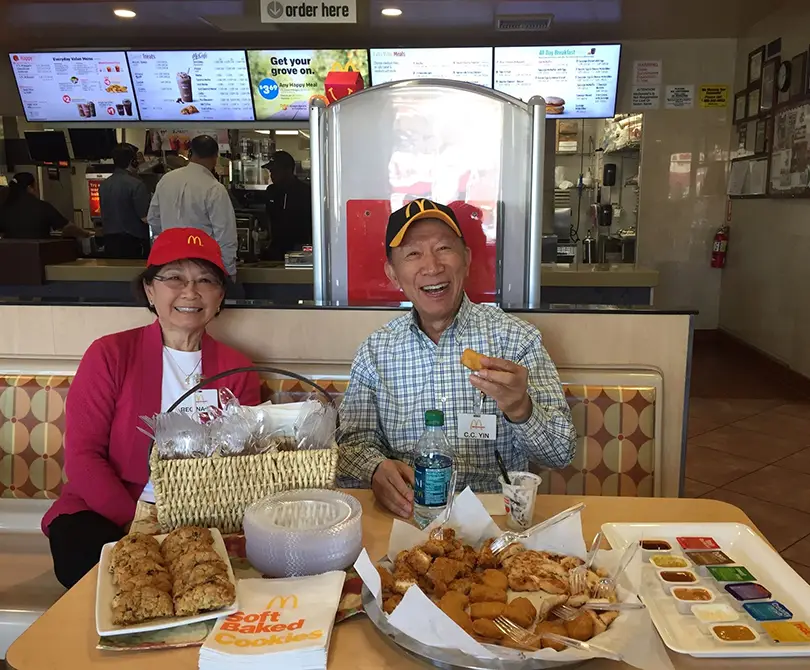
The Political Awakening: From Business to Civic Leadership
C.C., you mentioned that your first McDonald’s gave you a “jump start” to learn and understand how America works. How did that experience shape your future community work?
Owning and managing that first McDonald’s opened my eyes to how local policies, community dynamics, and even national politics affect businesses, families, and lives. I realized that if I wanted to make a real difference — not just for my restaurants but for entire communities — I needed to get involved in civic engagement to give back.
I was learning the fact that Asian-American community population was growing at such speed, but there was small or no representation in the U.S. local, state, and national government, and corporations let alone decision-making participation. That realization eventually led me to found APAPA (Asian Pacific American Public Affairs) in 2001.
APAPA’s mission is to encourage Asian Americans to take pride in who they are and where they come from — to be proud, active citizens engaged in their communities. The organization focuses on empowering underrepresented groups to participate in politics, leadership, civic education, and engagement.
For me, it was a way to give back and ensure that future generations would have a stronger voice in shaping the policies that affect their lives.
Today, APAPA is one of the largest nonprofit organizations in the United States dedicated to civic education and participation.
With more than 30 chapters nationwide and over 20,000 members, and headquartered in Sacramento, California, the organization has become a national platform for community development, leadership programs, educational initiatives, and civic engagement, guiding thousands of people find their path to public service and active participation in the life of the country and fulfill their American Dream.
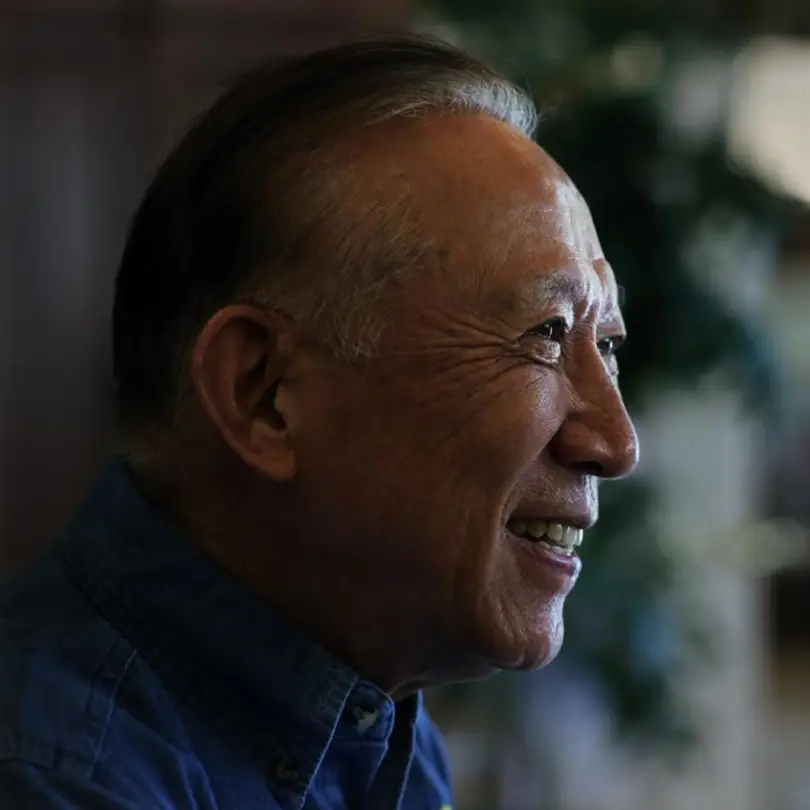
C.C., your success story is not just about your individual journey but also about the incredible support and leadership within your family. Can you share how your immediate family has influenced your life, your McDonald’s business, the APAPA non-profit, and Yin Ranch?
Absolutely. My inspiration started with my grandparents, my sisters, and my brothers. Also from the very beginning, my wife Regina stood by my side through risk, challenge, failure, and victory. When I took the leap from engineering to the world of entrepreneurship, it was Regina who grounded me, offering wisdom and unwavering support. She played a critical role in building APAPA from the ground up — helping shape its mission of civic engagement and community development.
Beyond APAPA, Regina’s influence reaches deeply into Yin Ranch, where her vision for community connection and cultural celebration helped transform it into a beautiful welcoming space. This includes a beautiful 20,000-square-foot API Culture Center & Museum, which serves as a gift of appreciation from the Yin family to America — telling the American story by contributing to cultural understanding. The center stands as part of a vibrant community hub on 40 acres of land in Vacaville.
My daughter, Mary Yin Liu, CEO of the APAPA National Board, has carried that legacy forward with extraordinary passion and vision. As the former National CEO of APAPA, Mary expanded the organization’s reach, modernized its programs, and strengthened its mission to empower the next generation of civic leaders. Her strategic insight and unwavering commitment to community engagement have been instrumental in APAPA’s growth into one of the nation’s largest civic education nonprofits. At Yin Ranch, Mary brings a fresh and forward-thinking perspective — transforming it into not only a community gathering place but also a platform for leadership development, cultural celebration, and civic engagement.
My other two daughters, Betty and Carol, along with my sons-in-law Harris Liu, Felix Lin, and John Bauer, and our extended family have all been steadfast supporters of APAPA and its programs. I am especially proud of my brother, Henry Yin, who served as APAPA’s former Chair and continues to be an active advocate for its mission.
Seeing both Regina and Mary pour their hearts into these projects, together with my family’s unwavering support, has been one of the greatest joys of my life. They — along with my wife and children — are the true backbone of everything we’ve built together.
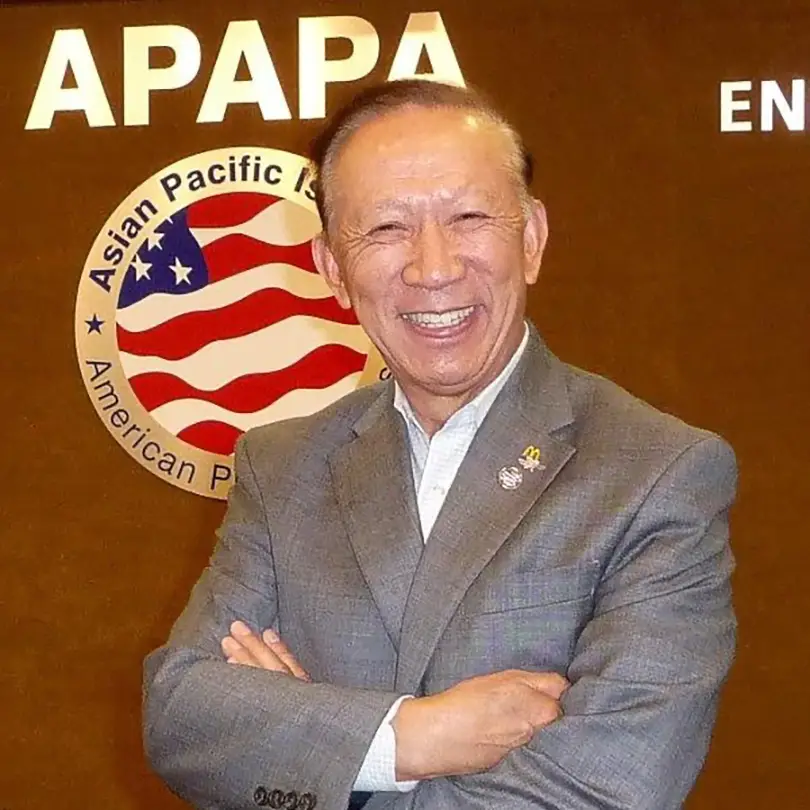
C.C., please tell us more about your vision for Yin Ranch project
Yin Ranch has always been more than just a piece of land — it’s a reflection of my lifelong commitment to community, culture, and America. When I first envisioned the project, I didn’t just see a ranch; I saw a place where people from all backgrounds could come together, celebrate their heritage, and build lasting relationships. My goal was to create a space that fosters unity, leadership, and education, all while honoring the diverse cultures that make up our communities.
Yin Ranch serves multiple purposes — it’s a venue for community gatherings, corporate retreats, cultural festivals, educational workshops, and community events. We’ve hosted events that bring together people from all walks of life, promoting civic engagement and cross-cultural understanding. It’s also a place of peace and reflection, where people can come to learn, grow, and connect with others.
I see Yin Ranch as a legacy project — a gift to future generations, where they can continue to foster dialogue, build community bonds, and inspire positive change. It’s not just about today’s events; it’s about building a foundation for tomorrow. I wanted Yin Ranch to be a place where values like respect, inclusion, and civic responsibility are not just discussed, but put into action. It’s a place where cultural boundaries fade, and people come together through shared experiences and friendship. Every event here, from leadership training to community festivals, strengthens that vision.
My hope is that Yin Ranch will continue to be a beacon for community engagement and leadership development long after I’m gone, carrying forward the mission of fostering unity and empowering future generations.
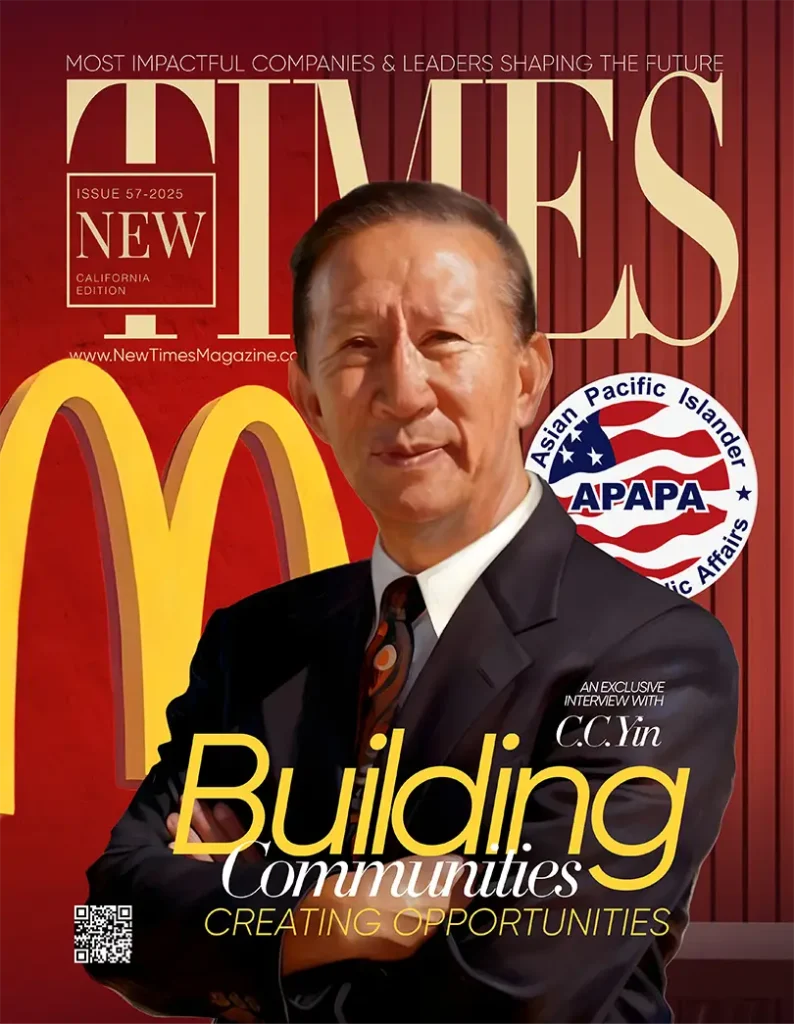
Final Thoughts
C.C., your journey — from arriving in America as a young immigrant with just $20 in your pocket, to becoming, along with your family, the owner of nearly 30 McDonald’s restaurants, founding one of the nation’s largest nonprofits, APAPA, and creating Yin Ranch on 40 acres in Vacaville — is truly inspiring. What advice would you give to the next generation?
Yes, my life in America started with just $20 in my pocket. I borrowed $100 from my cousin and spent $80 on a boat ride, arriving with no extra clothes or shoes.
It was by fate that I was given the chance to become a proud and successful American, to build a wonderful family, make many friends, and achieve the American Dream.
This country was built by immigrants on Native American land. Our generation upholds the values and principles of justice, liberty, freedom, and democracy — but the work is not yet complete. We must remain grateful to those who came before us and paved the way.
We have a responsibility to work hard, contribute, and continue building America — because it’s not finished yet. That’s why we have opportunities. Yes, we will face challenges, but those challenges are also opportunities to build a better life and a better America.
Be proactive in life, be civically engaged, and never stop learning. The next generation carries the responsibility to uphold the values of service, integrity, and hard work while building upon the foundation laid by those who came before us.
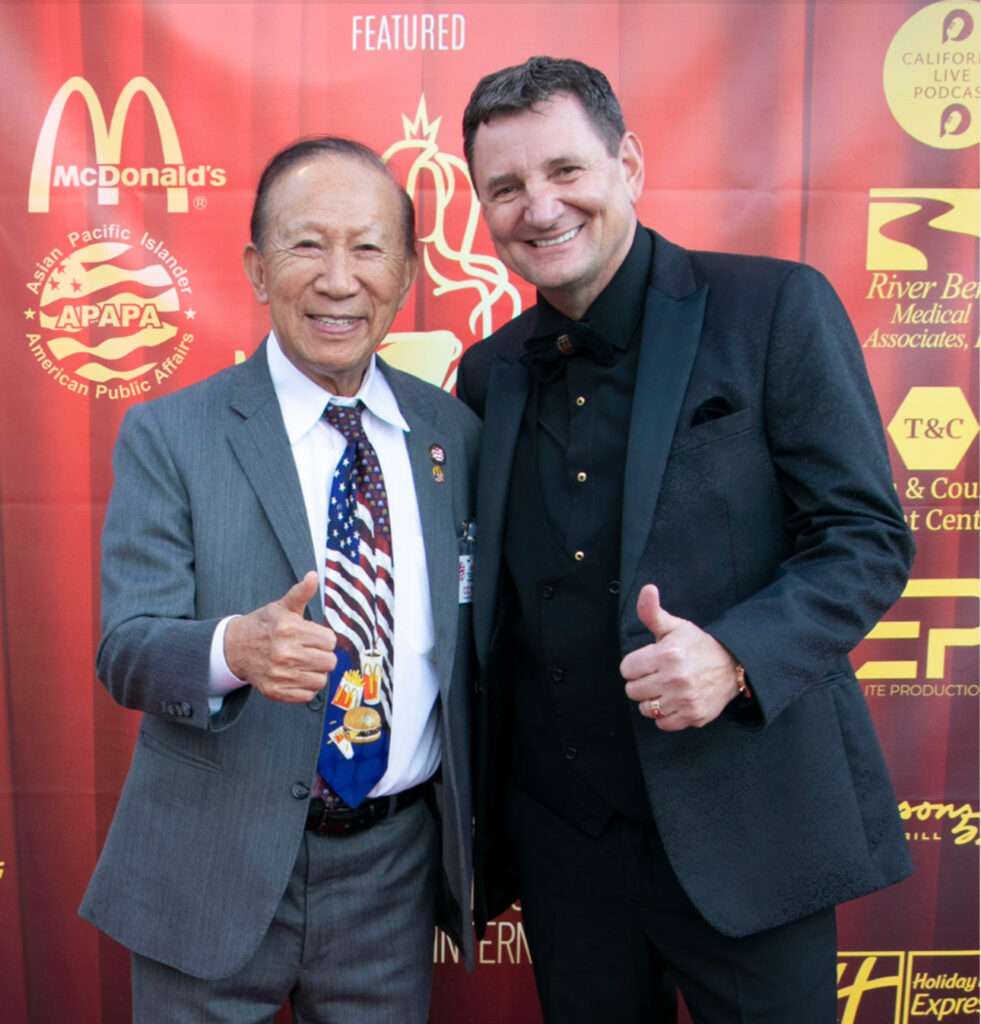
The Words That Shaped My Journey
I first met C.C. Yin about 20 years ago when he visited my office in Sacramento. At the time, I was working on a cover story for our Russian-language newspaper and was eager to interview a successful businessman like him. His secretary, Beth, informed me that he had a very busy schedule and could only spare 30 minutes.
During our meeting, I asked C.C. Yin about his journey to success — but to my surprise, the conversation quickly shifted. C.C. spent the next hour asking me about our media company and my vision for its future. At the end of our discussion, I asked him one key question: “C.C., what is my next step in growing our agency?” He looked at me and said, “Sergey, I’m fascinated by your success in building a media empire from nothing. But I will give you one piece of advice: Get out from the office!”
At first, I was confused. I had just explained how much work I had managing the production of our weekly newspaper and annual Slavic Business Directory. I even wondered if there had been a cultural misunderstanding, especially since I was still learning English as my second language. But when I asked again, he repeated firmly: “Get out from your office!”
It wasn’t until later that I fully grasped the wisdom of his words. When I began attending APAPA meetings, joining organizing committees, and serving on multiple nonprofit boards, I realized how many doors opened for me simply because I was out in the community, building relationships. That single piece of advice from C.C. Yin changed my approach and helped shape the future of my media business in ways I could never have imagined.


